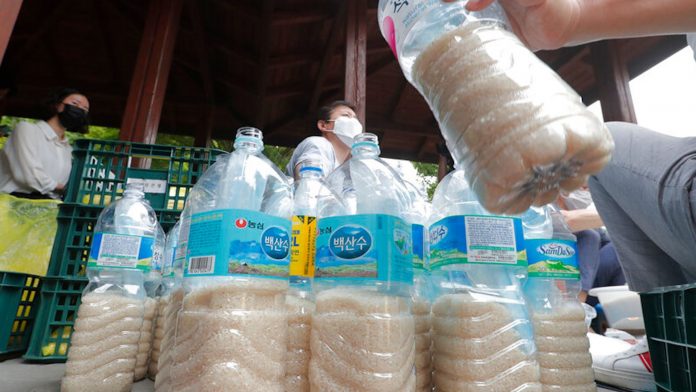South Korean authorities detained six United States citizens on Friday, June 26, for attempting to send plastic bottles filled with items across the sea to North Korea. Police said they apprehended the group on Ganghwa Island before they could release the bottles, which carried rice, U.S. currency, miniature Bibles and USB drives.
South Korea designated the area a “risk zone” under its “Disasters and Safety” law, which bans potentially provocative activities near the North Korean border.
A South Korean police official told Reuters the Americans are under investigation and may be held for up to 48 hours while authorities decide whether to release them. Speaking anonymously due to privacy rules, the official said the group violated safety regulations intended to prevent tensions with the North.
What was in the bottles?
The group reportedly prepared approximately 1,300 to 1,600 plastic bottles, each filled with rice, religious materials and electronic media. Police have not yet confirmed the contents of the USB sticks. Christian activist groups and North Korean defectors have used these types of campaigns for years to reach North Koreans with banned foreign media and religious content.
How has the South Korean government responded?
South Korean President Lee Jae-myung’s administration has taken steps to prevent civilian-led campaigns that could provoke North Korea. Since taking office in early June, Lee suspended anti-Pyongyang loudspeaker broadcasts along the border and requested activists halt balloon and bottle launches. His government emphasized reducing military tensions and promoting resident safety in frontline areas.
Chung Dong-young, Lee’s nominee for unification minister, recently called these civilian efforts “a catalyst for confrontation,” and expressed support for restoring inter-Korean dialogue.
What is North Korea’s response to such campaigns?
North Korea has reacted strongly to past leaflet and aid campaigns, calling activists “human scum” and launching its own balloons filled with trash across the border. In 2023, South Korea’s Constitutional Court overturned a law criminalizing leaflet distribution, citing free speech concerns. However, authorities now use safety regulations to monitor and restrict similar efforts.
The U.S. Embassy in Seoul has not commented publicly on the American detentions.

